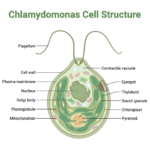IB Biology 16 Views 1 Answers
Sourav Pan🥇 GoldNovember 9, 2024
What are the causes and treatments for Type I and Type II diabetes?
What are the causes and treatments for Type I and Type II diabetes?
Please login to save the post
Please login to submit an answer.
Sourav Pan🥇 GoldMay 15, 2025
Type 1 and Type 2 diabetes are two distinct forms of diabetes, each with different causes, mechanisms, and treatment approaches. Here’s an overview of their causes and treatments.
Type 1 Diabetes
Causes
- Autoimmune Reaction: Type 1 diabetes (T1D) is primarily caused by an autoimmune response where the body’s immune system attacks and destroys the insulin-producing beta cells in the pancreas. This destruction leads to little or no insulin production.
- Genetic Factors: There is a genetic predisposition to T1D, often associated with specific human leukocyte antigen (HLA) alleles. Approximately 40% of familial cases are linked to these genetic factors.
- Environmental Triggers: Environmental factors, such as viral infections or other triggers, may initiate the autoimmune process in genetically susceptible individuals, leading to T1D development.
Treatments
- Insulin Therapy: Since individuals with T1D cannot produce insulin, lifelong insulin replacement is necessary. This can be administered through multiple daily injections (MDI) or continuous subcutaneous insulin infusion via an insulin pump.
- Blood Glucose Monitoring: Regular monitoring of blood glucose levels is essential to manage T1D effectively and adjust insulin doses accordingly.
- Diet and Lifestyle Management: Carbohydrate counting and maintaining a balanced diet help in managing blood sugar levels. Continuous glucose monitoring (CGM) devices can provide real-time data for better management.
- Emerging Therapies: Research is ongoing into potential treatments such as immunotherapy to halt the autoimmune process or methods to regenerate beta cells.
Type 2 Diabetes
Causes
- Insulin Resistance: Type 2 diabetes (T2D) primarily results from insulin resistance, where the body’s cells do not respond effectively to insulin. Over time, this can lead to decreased insulin production from the pancreas.
- Obesity: Excess body weight, particularly visceral fat, significantly contributes to the development of T2D by promoting insulin resistance.
- Genetic Factors: There is a hereditary component to T2D, with several genes associated with increased risk.
- Lifestyle Factors: Poor diet, physical inactivity, and metabolic syndrome (characterized by high blood pressure, high blood sugar, and abnormal cholesterol levels) are significant contributors.
Treatments
- Lifestyle Modifications: Many individuals can manage T2D through lifestyle changes such as adopting a healthy diet rich in fiber and whole grains, regular physical activity, and weight management.
- Medications: If lifestyle changes are insufficient, various medications may be prescribed:
- Metformin: The first-line treatment that improves insulin sensitivity and lowers liver glucose production.
- Sulfonylureas and Meglitinides: These stimulate the pancreas to produce more insulin.
- Thiazolidinediones: These enhance cellular sensitivity to insulin.
- DPP-4 Inhibitors and GLP-1 Agonists: These help lower blood sugar levels through various mechanisms.
- SGLT2 Inhibitors: These promote glucose excretion through urine.
- Insulin Therapy: Some individuals with T2D may eventually require insulin therapy if their pancreatic function declines.
0
0 likes
- Share on Facebook
- Share on Twitter
- Share on LinkedIn




